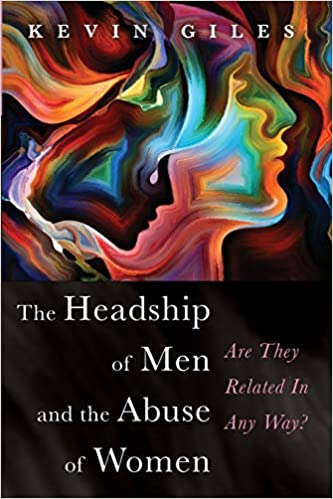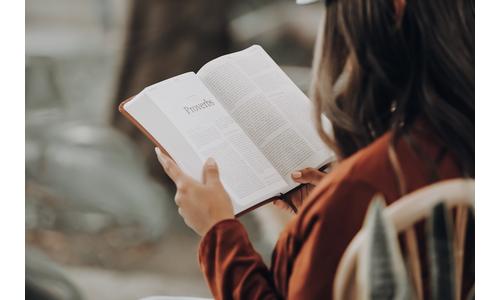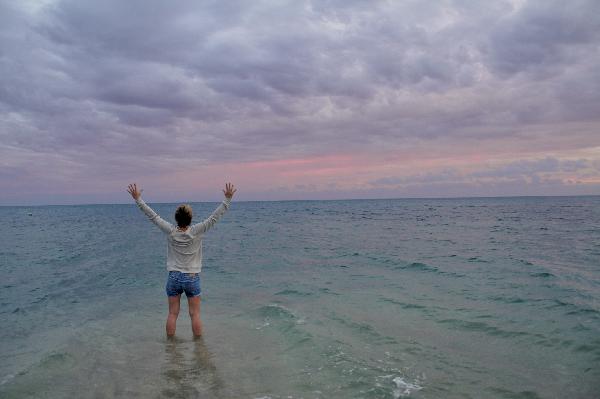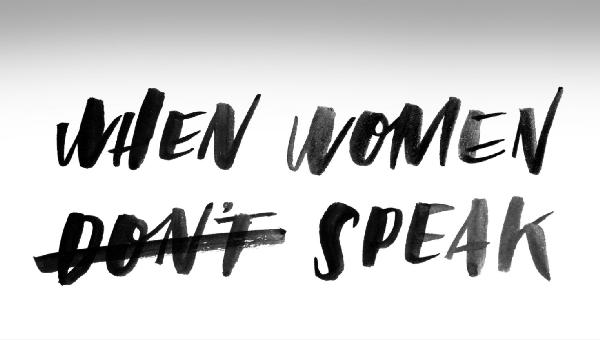Complementarians and Abuse of Women: Kevin Giles' Newest Book
- Details
- Written by: Chris Appleby
 Kevin Giles latest, and he says, his final book is a challenging look at the practical outworking of a strongly complementarian view of gender relations in the church and home. You can order it online or directly from Kevin himslef if you have his contact details.
Kevin Giles latest, and he says, his final book is a challenging look at the practical outworking of a strongly complementarian view of gender relations in the church and home. You can order it online or directly from Kevin himslef if you have his contact details.
Here is a link to a review from The Melbourne Anglican:
Penny Mulvey reviews his book
It is profoundly sad to even think there is a need for the book I have been asked to review. It is after all, 2020. And I am writing this for a Christian news service. How can it be that the Church in which I was baptised and confirmed, has to be told…no, not just told, but retold, again and again… that its teaching is leading to domestic violence?
Meet Bessie Harrison-Lee
- Details
- Written by: Dr Barbara Deutschmann
 Let me introduce you to Bessie Harrison-Lee and her world. It’s a bit of a stretch, thinking we can imagine her world from this distance in time and it is always a temptation to make it fit our labels and our views. Still, there are things for us to learn even if there are things about Bessie (and I hope she would not mind that I call her by that name) that make us scratch our heads and ponder her choices. How do we assess Christian women from over a century’s distance? The first thing to ponder is why more of us don’t know about her. She lived an astounding life, was a feted international speaker with dramatic flair, a prolific writer of Christian materials, and an active campaigner for social improvement. Along with Louisa Lawson and William Lane she was recognised as a strategic reformer in the late nineteenth century.
Let me introduce you to Bessie Harrison-Lee and her world. It’s a bit of a stretch, thinking we can imagine her world from this distance in time and it is always a temptation to make it fit our labels and our views. Still, there are things for us to learn even if there are things about Bessie (and I hope she would not mind that I call her by that name) that make us scratch our heads and ponder her choices. How do we assess Christian women from over a century’s distance? The first thing to ponder is why more of us don’t know about her. She lived an astounding life, was a feted international speaker with dramatic flair, a prolific writer of Christian materials, and an active campaigner for social improvement. Along with Louisa Lawson and William Lane she was recognised as a strategic reformer in the late nineteenth century.
She was born in 1860 into a different world in Daylesford, a small central Victorian hamlet. Her father was a butcher/miner and, because her mother died when Bessie was eight years old, she was sent to live with relatives close to Eildon. Her childhood was an unhappy one in a home affected by alcohol, poverty and violence. After her religious conversion, she married and adopted a temperance lifestyle. She and her railway-worker husband lived in the Footscray and Richmond areas of Melbourne and, concerned about the gross social effects of alcohol, Bessie worked with a doctor visiting the sick and those in gaol. Her first husband died and in 1908 she married a New Zealand farmer and subsequently lived in New Zealand, Hawaii and California.
Reading the Bible as a Woman
- Details
- Written by: Denise Cooper-Clarke
 This was the title I was given, but it is one I am uneasy with, for two reasons. First, it implies that women are a separate category of reader from the normative reader, who is, of course a man. It is not helpful to think of a woman’s perspective as if this were distinct from an “objective” perspective (understood as a male perspective). This is to assume the priority of the male. Was any man ever invited to write an article on “Reading the Bible as a Man”? Probably not, as until the last fifty years or so, reading, interpreting and teaching the Bible were the province of men. And white men, at that. For many years it was assumed that the standard (impartial or neutral) reading is a white male one, and that reading by women or people of colour, the poor or the disabled or any other group, are deviations or specialised readings. Yet every person reads from their own particular perspective, and no one perspective should be privileged above the others.
This was the title I was given, but it is one I am uneasy with, for two reasons. First, it implies that women are a separate category of reader from the normative reader, who is, of course a man. It is not helpful to think of a woman’s perspective as if this were distinct from an “objective” perspective (understood as a male perspective). This is to assume the priority of the male. Was any man ever invited to write an article on “Reading the Bible as a Man”? Probably not, as until the last fifty years or so, reading, interpreting and teaching the Bible were the province of men. And white men, at that. For many years it was assumed that the standard (impartial or neutral) reading is a white male one, and that reading by women or people of colour, the poor or the disabled or any other group, are deviations or specialised readings. Yet every person reads from their own particular perspective, and no one perspective should be privileged above the others.
Second, this title implies that there is a specifically female way of reading the Scriptures that is common to all women. But though women do share some experiences, we cannot speak of a single “woman’s perspective” or “woman’s reading”. A woman’s perspective (like a man’s) is shaped by her particular historical, cultural, social, family and educational back ground and her particular experience. So I cannot speak to how all women read the Bible: only to how I read it as a white, Australian, wealthy, educated, Anglican, baby boomer, wife, mother and grandmother, with a whole range of other particularities (not to say, peculiarities).
Nevertheless, I can identify a number of ways in which my being a woman has shaped my reading of the biblical text. I will discuss them under four headings: gender accurate translations, the dominance of men in the biblical texts, the treatment of women in the Old testament and the treatment of women in the New Testament.
Do not put out the Spirit's fire
- Details
- Written by: Elizabeth Devlin

"Do not put out the Spirit's fire. Do not treat prophecies with contempt but test them all;
hold on to what is good, reject whatever is harmful." 1 Thessalonians 5:19-22
Sometimes, the "gender debate" in our churches is viewed as being of lesser importance - “i.e. not a “salvation issue” - and therefore the outcome will not have any serious consequences. And while it’s true that the core message of God’s gracious gift of salvation transcends all other issues, the gospel shouldn’t be used as a trump card to silence or trivialise debate on this or other issues.
Such an attitude can belittle the experiences of women and men who have been - or are being - hurt by their church’s views on gender, but it also makes light of the rules that are designed to restrict and curtail how the Holy Spirit is allowed to work through God’s people.
Trivialising the gender debate ignores the aspects of spiritual warfare that undergird the debate.
"God also testified to it [salvation] by signs, wonders and various miracles, and by gifts of the Holy Spirit distributed according to his will." Hebrews 2:4
If we restrict the way in which women are allowed to use the spiritual gifts given to them according to God's will, are we working according to God's will or against it? Whose work are we really carrying out if we restrict the voice of the Holy Spirit?
Making Room at the Table: Encouragement for the Winding Road to Equality
- Details
- Written by: Chloe Specht

‘You’re not honoring the Word of God if you really believe that,’ the elderly man across the table said to me.
I sat in stunned silence.
I was teaching a Bible study on Galatians at a congregation with strong egalitarian roots. But the man “my student’ was openly insulting me in front of everyone because I dared to tell him that God made every human being equal in his sight.
At the time, I was a seminarian who had spent years studying the Bible professionally and had ministered to others diligently inside and outside of the local church. Though my accuser did not know me well, he certainly knew that I was competent in my field. Surely, he knew?
Sadly, every woman in ministry can tell some version of this story.
Though we are serving and leading with all of our soul, mind, and strength, there are those who still try to deny us a seat at the table. We spend year after year earning the trust and respect of our communities only to see an ill-experienced, less educated man get preferential treatment. It’s painful to watch it happen time and time again.
For me, the irony is that just a few years ago, I was a staunch complementarian.
Read more: Making Room at the Table: Encouragement for the Winding Road to Equality
- Details
- Written by: Chris Appleby
When Women Don't Speak
Groundbreaking BYU research shows what it takes for a woman to truly be heard. 
Dying for love
- Details
- Written by: Kevin Giles
 It is International Women’s Day on March 8th. Has anything changed for women since last year’s International Women’s Day? I ask this question because we Australians are reeling under the shock of the horrific murder of Hannah Clarke (31) and her three young children, Aaliyah (6) Laianah (4), and Trey (3). They were killed by her husband and the children’s father, Rowan Baxter. He doused them with petrol and set them alight in the family car. They appeared to the world as a glamorous couple with three beautiful children but in the home, Rowan was, his sister in law said, “a monster.” He always wanted his own way and was controlling. Hannah lived in fear of him and went to the police for help several times and had a court order out against him. Nevertheless, she is dead and so are the three children. In her greatest time of need no one could do anything. Her husband killed her and their three children in the most appalling way. If this woman would not live with him, or recognise his authority over her, and she wanted to take his children from him, he decided to kill them all.
It is International Women’s Day on March 8th. Has anything changed for women since last year’s International Women’s Day? I ask this question because we Australians are reeling under the shock of the horrific murder of Hannah Clarke (31) and her three young children, Aaliyah (6) Laianah (4), and Trey (3). They were killed by her husband and the children’s father, Rowan Baxter. He doused them with petrol and set them alight in the family car. They appeared to the world as a glamorous couple with three beautiful children but in the home, Rowan was, his sister in law said, “a monster.” He always wanted his own way and was controlling. Hannah lived in fear of him and went to the police for help several times and had a court order out against him. Nevertheless, she is dead and so are the three children. In her greatest time of need no one could do anything. Her husband killed her and their three children in the most appalling way. If this woman would not live with him, or recognise his authority over her, and she wanted to take his children from him, he decided to kill them all.
This is almost too much to get our heads around but to make things worse the police inspector in charge of the case, Mark Thompson, implied it was possibly all Hannah’s fault. Speaking the day after the murders, he said, “to put it bluntly,” we are “deciding which side to take.” We are “opened minded” at the moment. Which side are you on? Is this an issue of a woman suffering significant domestic violence and she and her children perishing at the hands of a violent and angry man, or is this an instance of a man being driven too far by his wife who wouldn’t do as he demanded? In other words, was this an awful, violent and wilful crime against a defenceless woman and her children, or did this woman deserve it? Had she driven her husband to do this because of her own actions?

